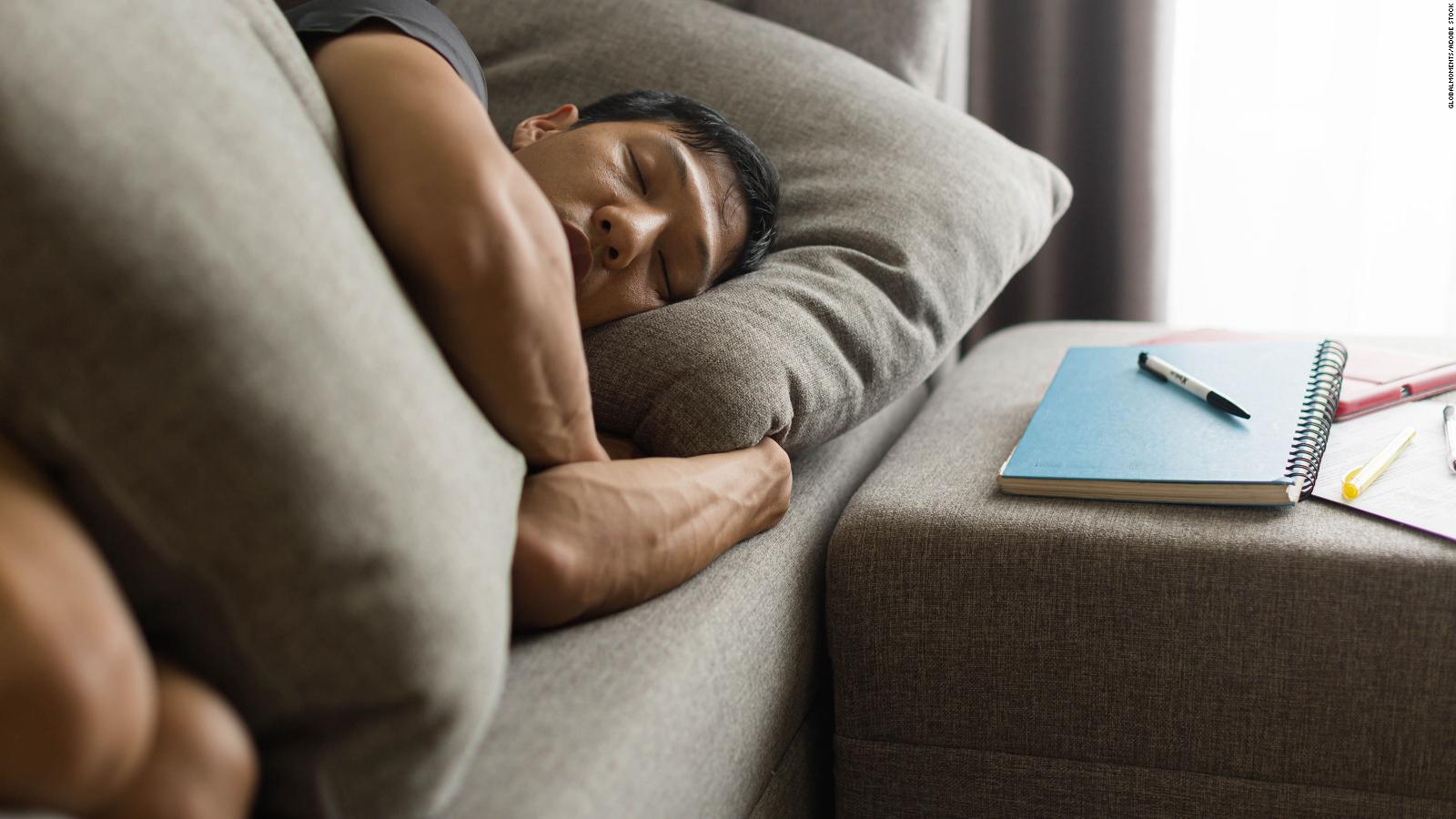Keys to counteract the effects of hypertension 2:13
(CNN) --
People who nap frequently are more likely to develop high blood pressure and have a stroke, according to a powerful new study.
"This may be because, although napping itself is not harmful, many nappers may do so due to poor night sleep. Poor night sleep is associated with poorer health, and napping are not enough to make up for that," clinical psychologist Michael Grandner said in a statement.
Grandner directs the Sleep Medicine Clinic at Banner University Medical Center in Tucson, Arizona, and was not involved in the study.
Excessive napping could be an early sign of dementia, new study says
Study participants who used to nap during the day were 12% more likely to develop high blood pressure over time and 24% more likely to have a stroke compared to people who never nap.
If the person was younger than 60, taking a nap on most days increased the risk of developing high blood pressure by 20% compared with people who never or rarely nap, according to the study published Monday in Hypertension. a journal of the American Heart Association (AHA).
The AHA recently added sleep duration as one of its eight essential parameters for optimal heart and brain health.
The results held even after the researchers excluded people at high risk for high blood pressure, such as those with type 2 diabetes, pre-existing high blood pressure, high cholesterol, sleep disorders and those who work the night shift.
"The results show that napping increases the incidence of high blood pressure and stroke, after adjusting for or accounting for many variables known to be associated with risk of cardiovascular disease and stroke," said Phyllis Zee, MD, director from the Center for Sleep and Circadian Medicine at Northwestern University Feinberg School of Medicine in Chicago.
advertising
"From a clinical standpoint, I think it highlights the importance of healthcare professionals routinely asking patients about napping and excessive daytime sleepiness and evaluating for other conditions that potentially contribute to modifying cardiovascular disease risk." said Zee, who was not involved in the study.
DASH Diet and Physical Exercise Help Manage Uncontrolled High Blood Pressure: Study
Longer naps are worse
The study used data from 360,000 participants who had reported their napping habits to the UK Biobank, a large biomedical database and research resource, which followed UK residents from 2006 to 2010.
Participants in the UK study provided regular blood, urine and saliva samples, and answered questions about napping four times over the four years of the study.
However, the study only collected the frequency of naps, not their duration, and relied on participant reports of naps, a limitation due to imperfect recall.
"They didn't define what a nap should be. If you're going to sleep for an hour, two hours, for example, that's not really a nap," said Dr. Raj Dasgupta, a sleep specialist and associate professor of clinical medicine at the School of Medicine. Keck School of Medicine at the University of Southern California.
Higher levels of stress increase blood pressure and risk of heart attacks and strokes, study says
"A 15- to 20-minute power nap between noon and 2 pm is 100% the thing to do if you're sleep deprived," said Dasgupta, who was not involved in the study.
"If you have chronic insomnia, we don't encourage napping because it takes away the desire to sleep at night."
Most of the people in the study who napped regularly smoked cigarettes, drank daily, snored, had insomnia and said they were night people.
Many of these factors can influence the quality and quantity of a person's sleep, according to Dasgupta.
Poor sleep causes "excessive daytime fatigue that can lead to excessive daytime napping," he said.
"I think napping is a warning sign of an underlying sleep disorder in certain individuals," he added.
"Sleep disturbances are linked to increased stress and weight-regulating hormones, which can lead to obesity, high blood pressure and type 2 diabetes, all of which are risk factors for heart disease."
cerebrovascular accidenthypertensionnap

